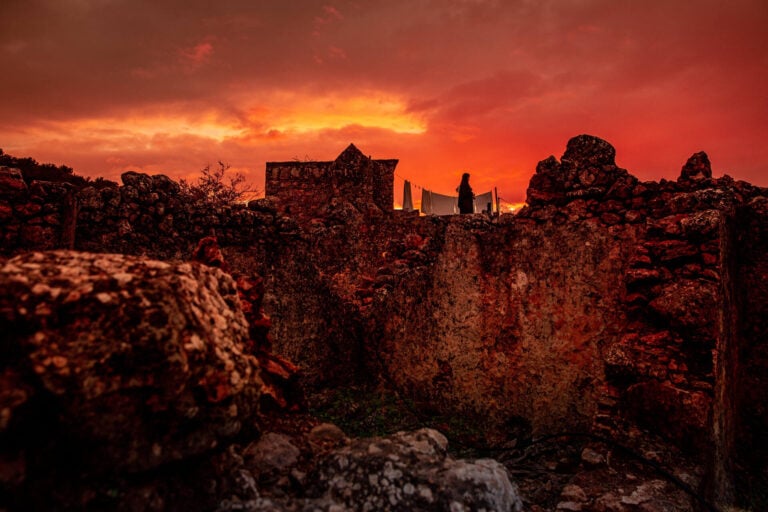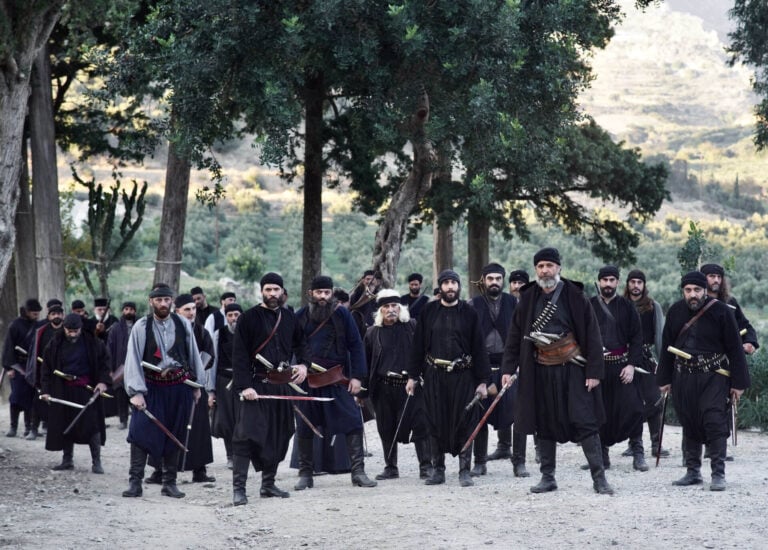When filmmaker Kostas Haralambous first encountered Nikos Kazantzakis, it was as a teenager reading Zorba the Greek.
“The first book by Kazantzakis that I read was Zorba the Greek when I was a teenager, and a little later Captain Michalis,” Haralambous tells Neos Kosmos. “Since then, I have read all his novels and sought clues to his personality.”
Decades later, Haralambous finds himself at the helm of a project that has been attempted before by the likes of Andrzej Wajda and Martin Scorsese but never realised, bringing Kazantzakis’ Kapetan Mihalis to the big screen.
“For their own reasons, these efforts did not bear fruit, and when the rights were released, I was subtly suggested to create a film based on the book,” he says. “All I had to do was seize the opportunity, which I did.”

For Haralambous, Kazantzakis’ work radiates something profoundly human.
“In Kazantzakis’ books, you will find a passion that urges you to experience everyday life as if it were the last moment of your life,” he explains. “This is a beacon for anyone who comes into contact with his work, especially in their younger years when everything is cloudy and they are trying to find their way.”
He adds that Kazantzakis’ deep love of people permeates his novels, something he wanted to preserve in his adaptation.
“Adapting a book by Kazantzakis into a film was and remains a significant challenge,” Haralambous admits. “For me, the challenge of adapting it is of a moral nature, specifically the effort not to betray the author’s concerns when, of course, you want the film to have the same title as the book.”
The director immersed himself fully in the project.
“From the moment I took on the responsibility, and beyond my previous academic contact with Kazantzakis’ work, I read and reread and reread Captain Michalis,” he recalls. After a year of study, he produced the screenplay over four months, striving to retain the novel’s essence.
Although set in 1889 Crete during a revolt against the Ottomans, Haralambous insists the novel and the film, is not primarily about war.
“All great books, like this one, talk about Man,” he says. “Kapetan Mihalis is not a war novel but an exploration of humanity, dealing with themes of love, honour, friendships, self-determination, passion, duty and many more.”
The universality of these themes, he argues, is why Kazantzakis’ work remains so relevant.
“Kapetan Mihalis has this relevance. It cannot be classified, and this lack of definition, especially by today’s standards, makes it ideal for questioning,” he notes. “Despite its historical setting, it is timelessly relevant to every thinking person, reflecting their contradictions and bringing their contradictions to bear on critical existential issues.”

The film, which will open the 30th Greek Film Festival in Sydney and Melbourne on October 14, has already been warmly received in Greece.
Haralambous says the production was made “with love and respect” for both Kazantzakis and the story’s enduring power.
“The context may be the great struggle of the Cretans for their freedom and self-determination,” he reflects, “but the challenge is for each person to realise their own ideals and passions torment them.”